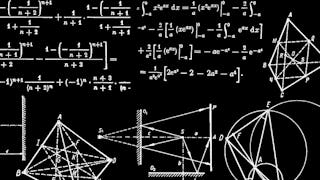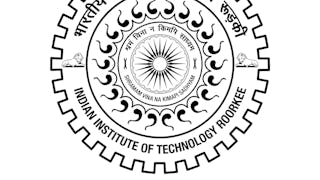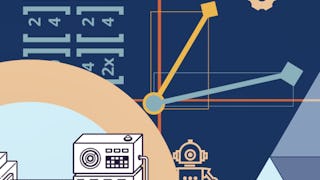This beginner-friendly course covers core linear algebra concepts essential for data science and machine learning. Start with linear equations and learn to identify linear vs. non-linear forms and solve systems with real-world examples. Then explore matrices and vectors, including matrix operations, special matrix types, and vector roles in linear transformations. Finally, discover how these foundations support techniques like Principal Component Analysis (PCA) for dimensionality reduction and data analysis.



Expérience recommandée
Ce que vous apprendrez
Understand the role of linear equations in data science and distinguish between linear and non-linear forms
Perform matrix operations and use vectors for linear transformations in machine learning
Apply concepts like systems of equations and matrix types to solve real-world problems
Build a strong foundation in linear algebra for machine learning, data analysis, and PCA applications
Compétences que vous acquerrez
- Catégorie : Machine Learning Algorithms
- Catégorie : Linear Algebra
- Catégorie : Mathematical Modeling
- Catégorie : Data Analysis
- Catégorie : Data Transformation
- Catégorie : Feature Engineering
- Catégorie : Data Modeling
- Catégorie : Dimensionality Reduction
- Catégorie : Applied Mathematics
- Catégorie : Data Science
Détails à connaître

Ajouter à votre profil LinkedIn
juillet 2025
7 devoirs
Découvrez comment les employés des entreprises prestigieuses maîtrisent des compétences recherchées

Il y a 2 modules dans ce cours
Explore the foundations of linear algebra in this beginner-friendly course. Understand the core concepts of linear equations and how they apply to data science and machine learning. Learn to identify linear vs. non-linear equations, explore different forms of linear equations, and solve systems of equations with real-world examples. Ideal for learners building a strong base in analytical thinking and mathematical modeling.
Inclus
9 vidéos1 lecture4 devoirs
Explore the core concepts of matrices and vectors in this hands-on course. Learn the basics of matrix operations, explore different matrix types, and understand their applications in data science. Get introduced to vectors and their role in linear transformations. Discover how matrices and vectors power techniques like Principal Component Analysis (PCA). Ideal for learners building strong foundations in machine learning math.
Inclus
5 vidéos3 devoirs
Obtenez un certificat professionnel
Ajoutez ce titre à votre profil LinkedIn, à votre curriculum vitae ou à votre CV. Partagez-le sur les médias sociaux et dans votre évaluation des performances.
Instructeur

Offert par
En savoir plus sur Software Development
 Statut : Essai gratuit
Statut : Essai gratuitDeepLearning.AI
 Statut : Essai gratuit
Statut : Essai gratuitUniversity of Colorado Boulder
 Statut : Prévisualisation
Statut : PrévisualisationIIT Roorkee
 Statut : Essai gratuit
Statut : Essai gratuitImperial College London
Pour quelles raisons les étudiants sur Coursera nous choisissent-ils pour leur carrière ?





Ouvrez de nouvelles portes avec Coursera Plus
Accès illimité à 10,000+ cours de niveau international, projets pratiques et programmes de certification prêts à l'emploi - tous inclus dans votre abonnement.
Faites progresser votre carrière avec un diplôme en ligne
Obtenez un diplôme auprès d’universités de renommée mondiale - 100 % en ligne
Rejoignez plus de 3 400 entreprises mondiales qui ont choisi Coursera pour les affaires
Améliorez les compétences de vos employés pour exceller dans l’économie numérique
Foire Aux Questions
Yes, linear algebra is fundamental to machine learning as it underpins models, algorithms, and data representations.
Absolutely. It helps structure, transform, and analyze large datasets efficiently, especially in statistical and predictive modeling.
You can start with beginner-friendly online courses focused on linear algebra for data science and ML, such as those offered by SkillUp, Coursera, or Khan Academy.
Plus de questions
Aide financière disponible,


